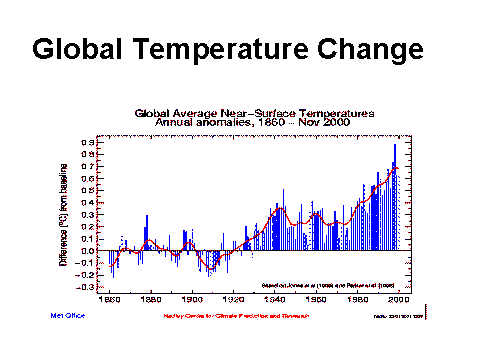
WASTEWATER RESEARCH AND INDUSTRY SUPPORT FORUM
Report on a one-day MET Office conference 14th June 2001
Please note that for older reports some links will be to sites that are no longer active.
Climate Change and the Water Environment
Introduction
The Met Office hosted this conference for invited delegates to present the work of its dedicated climate division – the Hadley Centre - and to examine the key impacts of climate change in Britain on urban and rural flooding, water resources, asset management and aquatic environments.
The conference was organised in three elements. The morning was devoted primarily to presentations focussed on the science; the afternoon to three, brief, presentations on impacts followed by a workshop session with feedback.
This brief overview summarises the position with regard to temperature and rainfall and have largely ignored changes in CO2. This is simply because the focus of the Forum interest is on changes in patterns and intensity of rainfall and drought rather than the atmospheric drivers – interesting though they are.
Climate change -Science
The conference was opened by Dr John Murlis, EA Chief Scientist. He presented data evidencing climate change and also identified potential impacts.
The following copies of some of the figures presented in the various presentations show both observed long term data and future projections.

The increase in global temperatures shown by this figure can be attributed to a combination of:-
Dr Geoff Jenkins (Hadley centre) later showed that temperature trends in the Northern Hemisphere over the 1 000 years 1000-1999 were downwards until 1950 with a significant upward rise in the last 50 years. This recent increase cannot be explained by natural variability (including solar/volcanic activity). The addition of human activity to natural variability gives good agreement. The 0.40C rise over the last 50 years is mainly due to human activity. The figure below shows the temperature rise in Central England over relative to the period 1772-1900. Note the rise in the later half of the 20th Century.
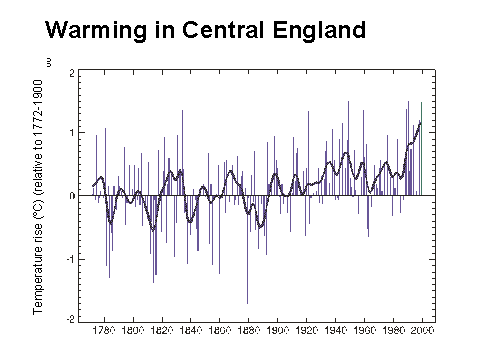
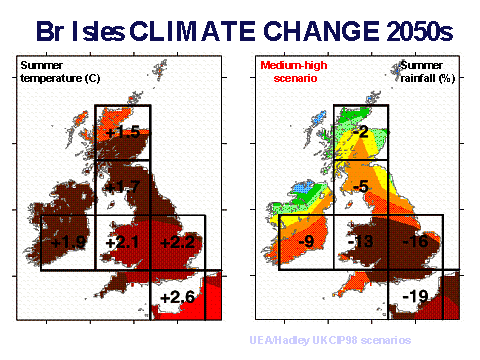
These two figures show the predictions for summer temperature increase °C and rainfall decrease (%) over the British Isles by 2050.
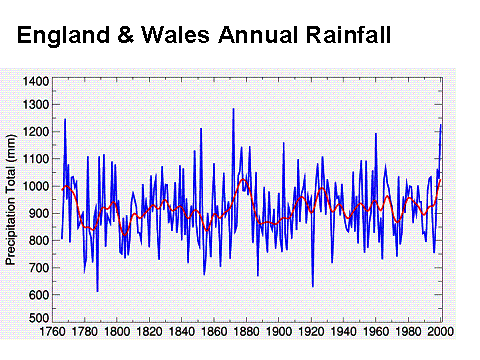
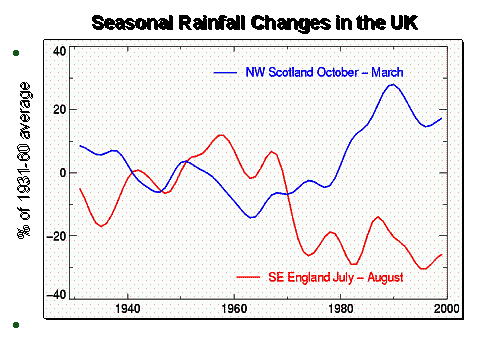
Note from these figures that, although overall rainfall shows little change over the total length of record, there have been significant changes in seasonal rainfall over the last 60 years. The following figure shows predicted changes (%) in UK Winter rainfall by the 2080’s.
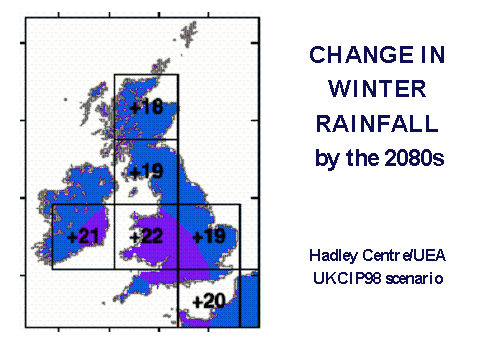
Dr Jonathan Gregory (Hadley Centre) discussed the uncertainties in prediction. He attributed these to:-
The following figure illustrates the extent of uncertainty in predictions of summer rain shown on an earlier figure.
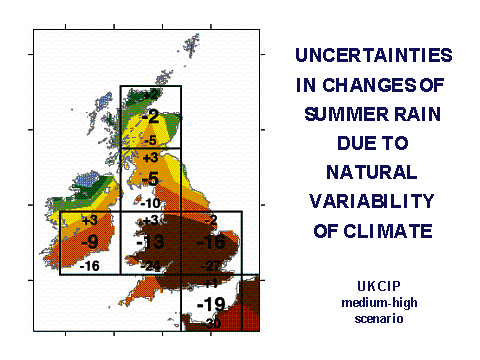
In summary:-
Climate change – Impacts
Professor Nigel Arnell (University of Southampton) talked about the impact of climate change on water resources. He quoted from the (soon to be published) Third Assessment report of the Intergovernmental Panel on Climate Change (IPCC):
The conclusions were:
John Firth (Severn Trent Water) said that his company considered climate change to be “The most important environmental issue affecting the company” and saw particular impact on the urban drainage system (sewers and treatment plants) - “It’s not all about water resources!”
The potential impacts are seen as affecting customers, river water quality, and causing both operational and asset maintenance problems.
Customer impacts:
Pollution impacts:
Severn Trent carried out a research project with the Met Office to examine the changes in frequency and intensity of short period rainfall events. The results from that project were:
Subsequently, the recently established UKWIR project on Climate change and the design of sewerage systems was outlined. The project involves HR Wallingford, Met Office, Montgomery Watson and Imperial College. The project objectives include: